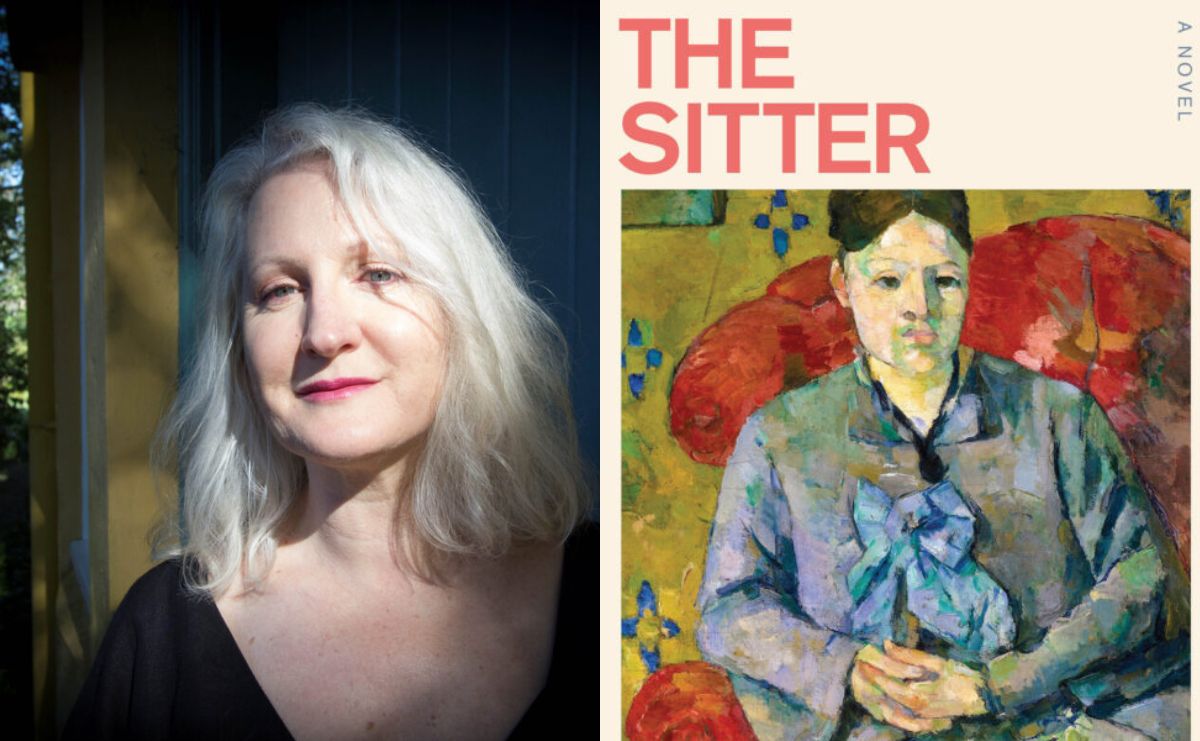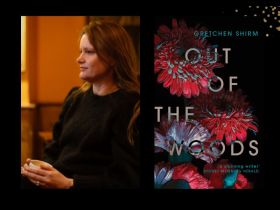French artist Paul Cezanne painted almost 30 portraits of Marie-Hortense Fiquet (1850 –1922), his companion, and eventually, wife. On the surface, theirs seemed to be a prickly relationship. Contemporaries, and later, art historians dismissed Madame Cezanne as sulky, shallow and a drain on her husband’s talent. Fiquet left few written records that could be mined in her defence. Into this breach steps Angela O’Keeffe’s The Sitter. Narrated by Fiquet herself, it gives a voice to the woman Cezanne painted in so many different guises as he interrogated the very art of portraiture.
Yet The Sitter is less about Fiquet than about a female writer whose plans to write a novel about Cezanne’s wife are derailed by lockdown in a Parisian hotel room. With her is Fiquet, ‘a bodiless presence’ able to observe and converse with ‘the writer’. As the two look out upon the charred skeleton of Notre Dame, Fiquet wonders if the writer is becoming her subject.
O’Keeffe’s first novel, Night Blue (2021), told the story of Jackson Pollock’s painting Blue Poles from the perspective of the artwork itself. The Sitter begins with an equally intriguing premise. As the writer’s thoughts spiral back through her own past, though, it becomes clear that Fiquet is the vehicle for a broader meditation on creativity, the impossibility of ever truly knowing another individual, and themes of love, motherhood, and grief.
Night Blue was an audacious, if not wholly persuasive exercise, hampered by the sometimes clumsy insertion of background information and attempts to explain the logistics of its narration. The Sitter falters in similar ways, with intrusions that may break the spell for some readers early on. ‘Although I died in 1922,’ Fiquet explains, ‘I am cognisant when it comes to computers.’
Fiquet also finds herself speaking English, blaming her forgotten French on the writer: ‘I was living, after all, in her mind.’ This blurring of lines makes possible a thoughtful exploration of the creative process but, unmoored from 19th century French language and culture, and with minor errors throughout, it is sometimes difficult to distinguish Fiquet’s voice from the writer’s. As the writer herself despairs, ‘I’m writing from the point of view of a French woman, and I can’t bloody speak French.’
Fiquet ultimately remains elusive, which, however deliberate, raises the question of why this particular narrator? There is even less of the eccentric-looking and often demanding Cezanne. On the conundrum of the many portraits he painted of his wife, O’Keeffe’s Fiquet claims part responsibility, triumphing in the limited autonomy she was able to snatch: ‘I learned to hold myself back’, she reveals, ‘I did not let myself be got.’ Such declarations, however, provide only glimpses of the contorted connections between creativity and money, power and patriarchy that underwrote the pair’s own relationship.
In the book’s second part, the writer revisits her earlier life on a Queensland farm. Here we learn of a troubling event in her teens, and it is here that the novel is at its most heartfelt, from the mice scrabbling in the ceiling at night to Catholicism’s persistence in rural Australia. Freed from the brittle construct of the Parisian scenes, the narration takes on a new conviction.
Read: Book review: Storytellers, Leigh Sales
The Sitter received the 2023 Quentin Bryce Award for a UQP book ‘that celebrates women’s lives and/or promotes gender equality’. Despite more scholars turning their attention to Hortense Fiquet, she retains the mystery of her portraits. In imagining a voice for her that summons wider reflections on gender and history, O’Keeffe reminds us that Fiquet had an identity, and words, of her own. But the character of ‘the writer’ is even more compelling, suggesting that authors – and publishers – are perhaps sometimes too quick to look for a Parisian connection.
The Sitter by Angela O’Keeffe
Publisher: University of Queensland Press
ISBN: 9780702266348
Format: Paperback
Pages: 180pp
Release date: 1 August 2023
RRP: $29.99
This review is published under the Amplify Collective, an initiative supported by The Walkley Foundation and made possible through funding from the Meta Australian News Fund.





